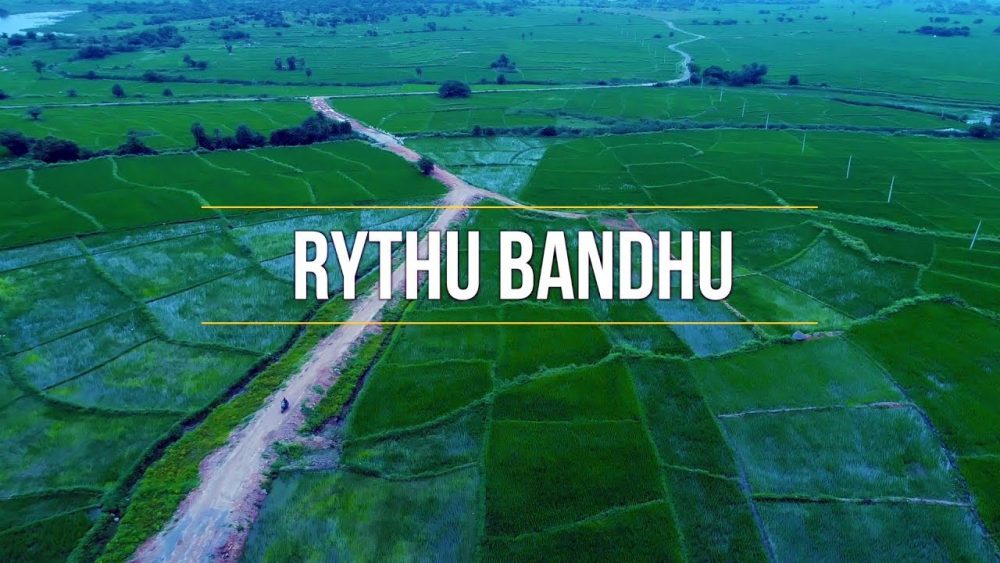
The Election Commission of India has granted permission to the Telangana Government to disburse Rs 7,350 crore under the Rythu Bandhu scheme to nearly 60 lakh agricultural land-owning farmers, just a week ahead of the elections.
This welfare distribution via Direct Benefit Transfer could significantly influence the electoral outcome in favour of the ruling Bharat Rastra Samithi (BRS). However, the authorisation by the Election Commission of India raises questions, as its significance and the necessity for immediate implementation, instead of a possible delay by two weeks, remain unclear.
2020 flood relief
Before the 2020 municipal elections in Hyderabad, Chief Minister KCR announced Rs 10,000 for every household affected by urban floods caused by heavy rains during the election season. The decision to announce the flood relief through DBT was supposed to pacify voters with ‘an election gift’ in view of the rise of BJP in Telangana. The politics over the announcement of DBT before elections was opposed by Indian National Congress and BJP. The Telangana State Election Commission stopped this process mid-way with the Model Code of Conduct in place.
Before the exercise was stopped, 6.64 lakh families received flood relief to the tune of Rs 664 crore in the city. The Telangana State Election Commission asked the Government of Telangana to distribute the flood relief after the elections, which did not happen. The DBT announcement for flood relief was clearly made to ensure voters were not angry with BRS and don’t vote against them in municipal elections.
While the Telangana State Election Commission, responsible for holding municipal elections in Telangana acted responsibly and delayed the Direct Benefit Transfer. The Election Commission of India’s decision to allow Rythu Bandhu in the middle of the Assembly election cycle is clearly not rational. Anticipating such tactics, the Indian National Congress already demanded the Election Commission of India to ensure all welfare schemes linked to Direct Benefit Transfer programmes including Rythu Bandhu were completed by early November 2.
No relief for landless farmers
The Congress is likely to challenge the Election Commission of India’s decision in the High Court or Supreme Court. It is unclear whether they would get the relief before the Government of Telangana transfers the money. BRS and Congress are likely going to accuse each other of opposing Rythu Bandhu for farmers.
The idea of welfare in itself is not wrong and the Congress too has promised a higher amount under Rythu Bandhu, including the relief for tenant farmers, who had been excluded under BRS government. Rythu Bandhu has been criticised for how it was being used to transfer money to large landowners while ignoring the landless farmers. This is a conscious decision under KCR to keep the landowning classes happy. It is also important to understand these decisions are backed by data that is not entirely in the public domain.
In numbers
According to Intensive Household Survey/ Samagraha Kutumba Survey data, In Telangana, 68% of households are landless, while the majority of 32% landowning classes only have 0-1 acre of land. The land ownership-based welfare programme has been only helping the rich landowner, who receive Rs 5,000 per acre. Most of the 68% landless households are from Backward Classes with 33,36,524 households who don’t own land, 11,99,015 households of Scheduled Castes, 11,63,250 households belonging to minorities, and 4,62,829 households of Scheduled Tribes.
Land Ownership in Telangana Source: Intensive Household Survey / Samagraha Kutumba Survey 2014
Landless Household in Telangana Source: Intensive Household Survey / Samagraha Kutumba Survey 2014
Direct Benefit Transfer helps political parties
The utilisation of Direct Benefit Transfer (DBT) facilitated by Aadhaar appears to advantage incumbent political parties by swiftly disbursing financial benefits to the populace ahead of elections. DBT, a system powered through the Aadhaar payment bridge, operates as both a monetary mechanism and a micro-targeting system, although the specifics of group targeting remain opaque. During the 2019 General Elections, the BJP mirrored this strategy by launching PM-KISAN, inspired by Telangana’s Rythu Bandhu initiative.
While the opposition struggles with organising its political stance, DBT enables ruling parties to leverage governmental machinery for electoral gains. When combined with Aadhaar, DBT allows the government to identify beneficiaries and empowers political parties to canvass votes from these specific recipients. The BRS workers, for instance, can approach Rythu Bandhu beneficiaries, seeking their support in the upcoming elections.
In Telangana, the opposition largely lacks access to beneficiary information and the outcomes of the Samagraha Kutumba Survey/Intensive Household Survey conducted in 2014. Conversely, as the incumbent chief minister KCR and the BRS have access to non-public information sources, providing them an edge in understanding Telangana’s population dynamics.
Capitalising data
Despite revelations from the Cambridge Analytica whistleblower five years ago, exposing the manipulation of data for electoral purposes worldwide, the Election Commission of India’s silence on this matter continues to impact Indian elections without any evident plan to counter algorithmic manipulation and targeting during elections. The Election Commission’s decision to allow DBT in the midst of an election cycle is poised to disproportionately favor the BRS.
The role of Aadhaar in constructing comprehensive Big Data repositories for micro-targeting and the deployment of DBT for financial welfare programme is significantly undervalued. Big Data and substantial financial resources are employed to influence the population beyond electoral cycles, posing concerns due to the absence of safeguards and discussions addressing these issues.
The methods observed in the Telangana Assembly elections are likely to be replicated and expanded upon in national elections. Addressing the Election Commission of India’s decision becomes crucial not only for ongoing elections but also to establish institutional accountability. There’s a pressing need to hold the Election Commission accountable for its practices and clarify the rationale behind permitting substantial monetary transfers during electoral periods.
This article is shared under Creative Commons Attribution – No Derivatives 4.0 International (CC BY-ND 4.0



